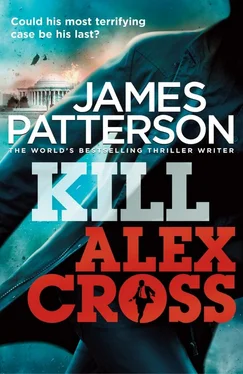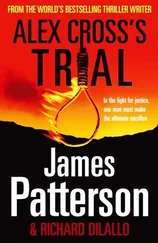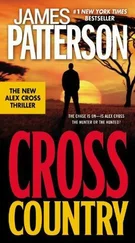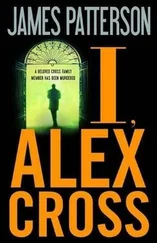That part, she kept to herself.
He moaned as she rewrapped it, using the gauze first, then the Ace bandage. Pressure was the only tool she had at her disposal for now, but she could see the agony it put him in.
When she held out several of the Tylenol, he shook his head.
“Hala, please,” he said. “It’s not enough. You know what I want.”
She did. That was exactly why she’d taken the cyanide from him. Both of their capsules were now in her pocket, where she intended them to stay.
The only other thing they had left to their name was Hala’s Sig Sauer pistol. Everything else — their passports, money, computer, all of it — was back at the Four Seasons. It might as well have been locked in a vault. Even on her quick trip to the drugstore and back, Hala had seen her own grainy image gracing the cover of several newspapers.
They didn’t even have the means to get themselves out of Washington. This godforsaken city had become their prison — and Tariq knew it. The empty, defeated look in his eyes said everything she needed to know.
“Please, Hala,” he tried again. “There’s no dishonor in this. We’ve done all we can.”
She pressed the Tylenol into his hand. “Take them,” she said. “Trust me, my love. We’re not done yet. Not even close.”
There was still one possibility she could think of. It was a risk, but less extreme than the option at the bottom of her pocket.
When she got up to leave again, Tariq reached after her like a child who couldn’t bear to be left alone. “Where are you going?” he moaned.
“Not far,” she said. “Just wait here. I’ll be back for you. I promise.”
Hala left Tariq at the back of the alley and crossed the street to the bus station.
There was every reason to feel terrified right now, but she wasn’t. The more Tariq seemed to be giving up, the more determined she became. Their backs were against the wall, and so what? They’d been there before. They had trained hard for just this eventuality.
And, if the worst did happen — if the capsules proved necessary in the end — there were still nine rounds left in her gun. That meant nine more Americans who would die before she did.
Inside the mostly deserted bus terminal, she crossed the waiting area to a small bank of battered and heavily graffitied pay phones at the back. Surprisingly enough, the first one she picked up gave a dial tone, and she pressed zero.
It took an irritating amount of time to place the call — overseas, collect, to Saudi Arabia. The American operator was virtually useless.
But then all at once a familiar voice was there on the other end of the line, accepting the charges.
“Hala, darling, is it you?” her mother said in Arabic. “Where are you?”
“Still in America, Mama,” Hala said. It was strange, using her native language after so many weeks of English. “Our business isn’t done here yet. Tariq and I are staying on First Street. Between K and L.”
“I don’t know what that means, Hala. K and L?”
“It’s where we’re staying right now,” she said.
“But when are you coming home?” her mother wanted to know. “Fahd and Aamina ask about you every day. They miss you so much.”
Hala squeezed her eyes shut against the tears that wanted to come. She mustn’t do anything to draw attention here, she knew. Not even the smallest thing. She would not let herself cry, or show any other weaknesses.
“Give them my love, Mama,” she said. “Please.”
“But they’re right here,” her mother said.
“No! I can’t stay on the phone,” she tried, but too late. A moment later, Fahd’s sweet voice was in her ear.
“Mama! I miss you!”
“I miss you, too. Are you being a good little man?” she asked. Her own voice was thick. She hoped the boy wouldn’t notice. It was nearly overwhelming.
“Yes, Mama. We’re learning about geology in school. Do you know what sedimentary rock is?”
“I do,” she said. “But, Fahd, I can’t talk right now. Mama has to go.” She could hear poor little Aamina clamoring for a turn in the background. “Back to First Street, between K and L. Across from the bus station.”
“What, Mama?”
“I have to go,” she said quickly. “Tell your sister that Papa and I love her very much. We love you, too. You are the best children in the world.”
“Will we see you soon?” he asked.
Hala gave the only answer she could bring herself to give. “Yes,” she said. “Soon. Very soon.”
Hanging up the phone on Fahd was as difficult as anything Hala had been called upon to do in America. But also just as necessary. Every second she spent in public here was a large risk. As soon as she’d gathered herself, she turned and walked quickly back the way she’d come.
Now all she could do was pray that the right people — and none of the wrong ones — were listening in on her parents’ telephone calls. The Family was very thorough that way, but so much had changed in the past few days.
Whether or not they’d heard what she said, and whether they’d come for her and Tariq, only time would tell.
Inshallah .
I woke up to a text on my Blackberry the next morning. It had been sent by Peter Lindley’s office assistant: “8:30 AM Liberty Crossing, vital meeting with AD Lindley. Pls confirm.”
The last thing I wanted now was to be pulled back out to LX1. I’d tripled the surveillance on Rodney Glass and had three teams keeping an eye on him around the clock in eight-hour shifts. If he made any more odd moves, I wanted to be close by when they happened.
So I was feeling more than a little anxious by the time I got all the way out to Langley. What I expected was a full meeting of our CIA work group, but when I came into the conference room, it was just Lindley and half a dozen of his own case agents and team leaders. Two stories below, through the glass wall, I could see the command center bullpen, buzzing away.
“You’re here. Good,” Lindley said, waving me inside. It looked like the rest of them had been at it for a while. Ties were loose, sleeves were rolled up, and the table was littered with files. Most of those had the Bureau’s seal stamped on the front.
“First of all, we’ve got a credible line on another accomplice to the kidnapping,” Lindley said.
One of the agents dropped a file in front of me.
I opened it to see a small photocopy of a mug shot, bulldog-clipped to what looked like several arrest reports. The name on the photo was Deshawn Watkins.
“What about him?” I asked. “Who is he?”
“His girlfriend came in through one of the hotlines,” Lindley said. “One of a million calls, of course, but she had a few interesting things to say. Namely, that Mr. Watkins was recruited online and paid five hundred dollars for his services, plus a hit of some kind of high-grade smack.”
“Just like our van driver, Mr. Pinkney,” I said.
“Our first van driver,” Lindley said. “It seems now that maybe there were two.”
I started flipping through the file. Watkins had a mile-long record of misdemeanors and a few felonies, including some jail time for armed robbery when he was sixteen. He’d also done a couple of court-ordered stints in rehab.
“The girlfriend says Watkins was instructed to pick up a vehicle on the morning of the kidnapping, then back it up to the groundskeeping shed at Branaff and wait for some kind of package to be delivered. After that, she says, he drove it out to Reagan National, long-term parking, and walked away. The back of the van was locked from both sides, and he never got a look at what he was transporting.”
“Or who put this ‘package’ into the van,” I said.
Читать дальше












